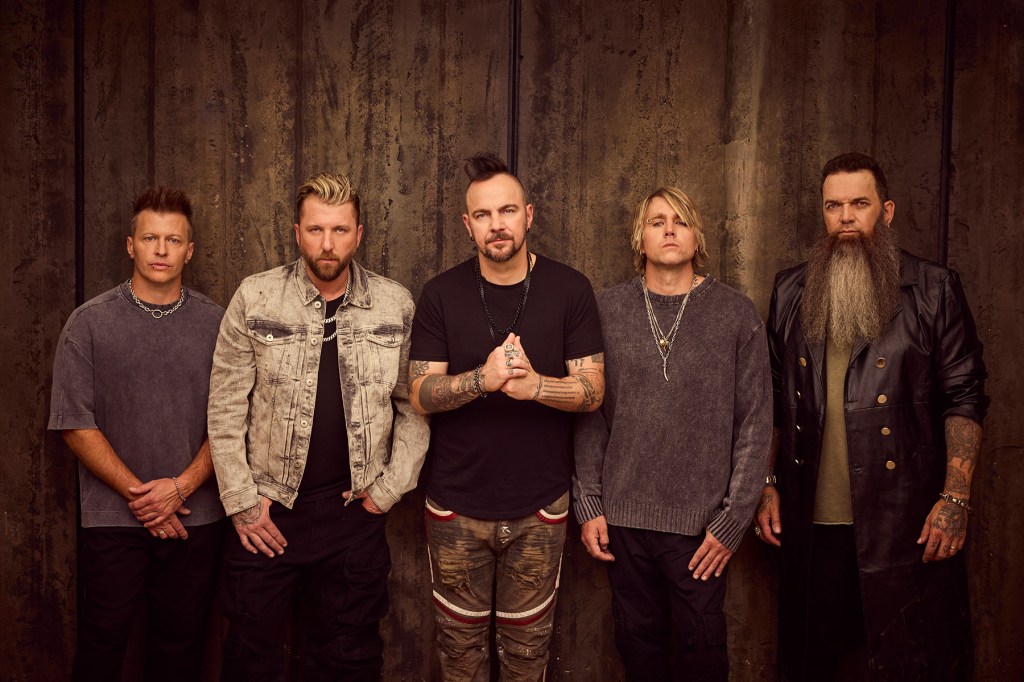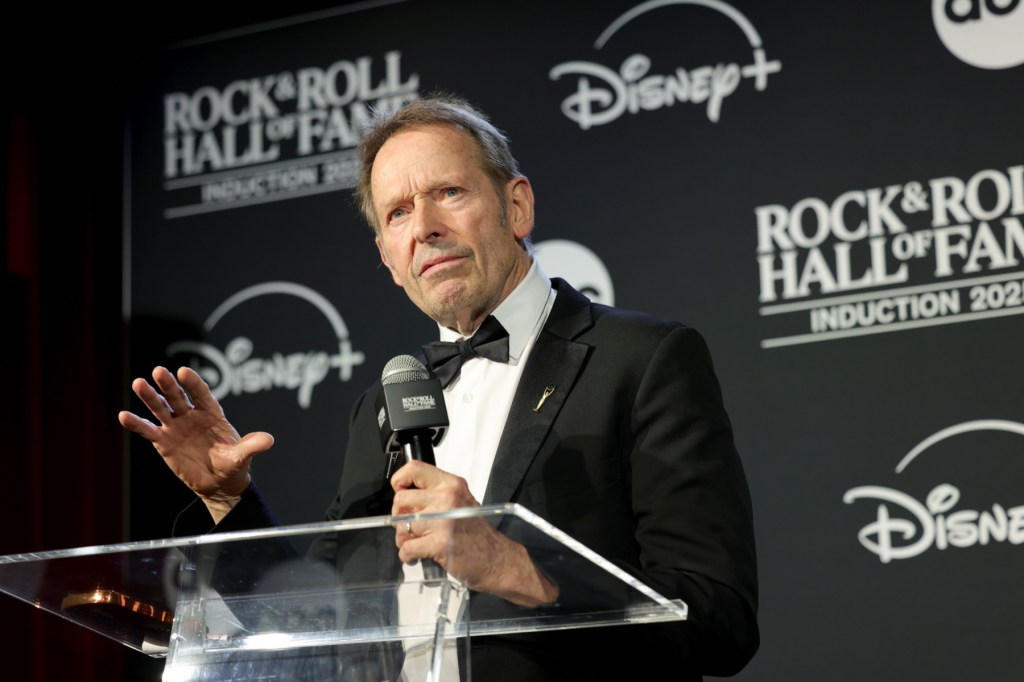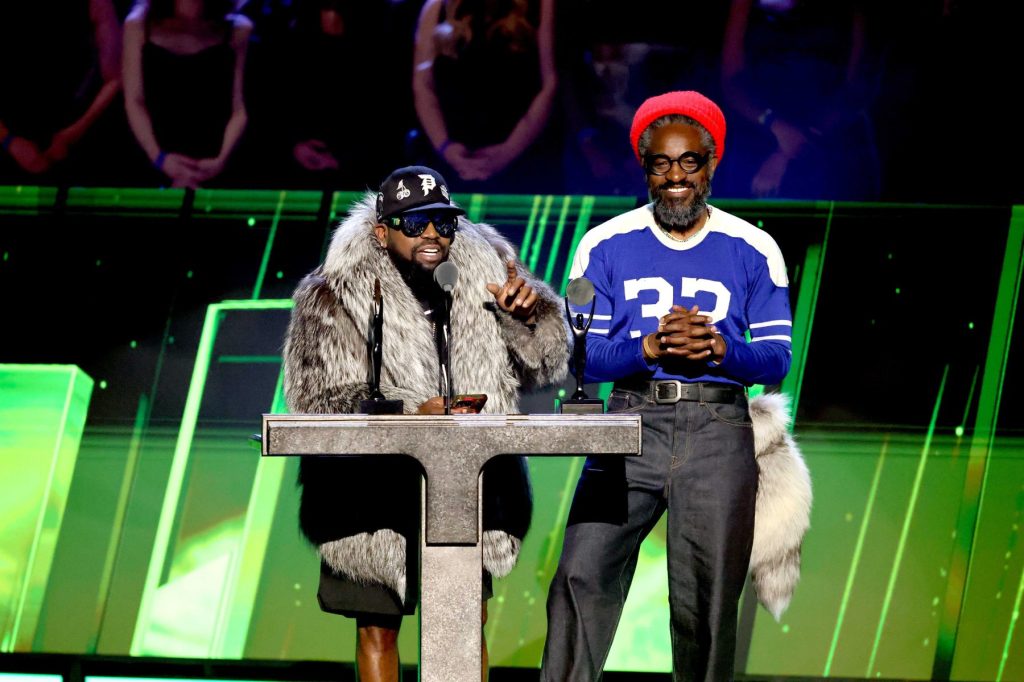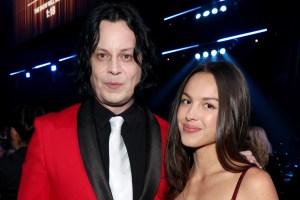genre rock
Page: 9
Trending on Billboard
Three Days Grace is getting back on the road. The band announced the Alienation World Tour 2026 on Monday (Nov. 10), which will kick off in Fort Wayne, Ind., in February, before hitting Canada and Europe and wrapping up in November for the final show in Los Angeles.
Rock bands I Prevail and The Funeral Portrait will be opening on the U.S. dates, while Canada will see support from Finger Eleven and Royal Tusk.
Special pre-sale tickets will be available starting on Tuesday (Nov. 11), and general onsale will begin on Friday (Nov. 14) at 10 a.m. local time on the band’s website.
2025 has been a stellar year for Three Days Grace. The group returned with its latest album, Alienation, in August, which is Adam Gontier’s first project with the band since 2012’s Transit of Venus. Three Days’ current vocalist, Matt Walst, will remain a co-singer for the group as well. Drummer Neil Sanderson explained in an interview with Canada’s The Metal Voice in March how the band shifted to having two lead singers.
“First and foremost, we’re a family. We all grew up together in a small town, and so Matt, who came in 2013 to replace Adam, he’s been in the band for, yeah, 12 years now,” Sanderson said at the time. “But he’s Brad, our bass player’s younger brother. So he was around as a kid when we were first just jamming in basements and trying to figure out our sound as we were teenagers, and he wasn’t even a teenager.”
He continued, “And so for him to come in was just a very natural fit. And then, as time progressed on, we just started having open conversations, which is the notion of, like, what would this be if we joined forces and we become a five-piece? And it creates a completely new dimension and facet for the sound of THREE DAYS GRACE and our ability to artistically branch off into just different things that we can do with having two voices that are uniquely different, but come together in such a powerful way.”
Check out the full list of tour dates below.
Trending on Billboard
Fifty years ago on Nov. 10, 1975, massive freighter the SS Edmund Fitzgerald sank in Lake Superior, amid 50-foot waves and 100-mile-an-hour winds. All 29 men aboard the ship died.
The loss was commemorated in folk-rocker Gordon Lightfoot’s “The Wreck of the Edmund Fitzgerald,” which hit No. 2 on the Billboard Hot 100 a little more than a year later, on the chart dated Nov. 20, 1976.
The haunting ballad reenters Billboard’s Nov. 15-dated Rock Digital Song Sales chart at No. 5 and Country Digital Song Sales at No. 7, up 160% to 1,000 sold Oct. 31-Nov. 6, according to Luminate.
The song also gained by 77% to 1.4 million on-demand U.S. streams in the tracking week.
In 2015, Lightfoot discussed the origins of the single, which he solely wrote, in an interview with the Milwaukee Journal Sentinel. “The story of the sinking of the Fitzgerald stayed with me in a funny kind of a way, all by itself,” he shared at the time. “I wasn’t forgetting about it. I knew everyone had forgotten about it, but I knew I hadn’t forgotten it.”
Lightfoot, who died in May 2023 in his native Ontario, recalled that he “had some chords and a melody I had been thinking about and didn’t know where to direct it.
“It is a very good piece of work, I do believe,” he said of the track, which also went top 10 on Adult Contemporary. “It’s one of those songs that just stands the test of time and it’s about something that, of course, would be forgotten very shortly thereafter, which is one of the reasons I wrote the song in the first place. I didn’t want it to be forgotten.”
Lightfoot went on to befriend family members of victims of the ship’s sinking, remaining aware that the song was at its core a tribute to an actual tragedy.
Of it, he said, “There is a responsibility.”
Trending on Billboard
Ozzy Osbourne was hoping to record one more album before his shock death in July at age 76. According to the late hard rock icon’s longtime solo band guitarist, Zakk Wylde, not long after this summer’s all-star Back to the Beginning show honoring Black Sabbath and Ozzy’s solo career, the Prince of Darkness rang Wylde up with some ideas for a potential album.
“He was texting me, ‘Zakk, let’s do another record. Because I really loved it when you were going through your Allman Brothers, Skynyrd phase when we did ‘No More Tears,’ it’s heavy but it’s more melodic, it’s not pummeling heavy,’” Wylde told N.J.com of the vibe Ozzy was in search of that would hearken back to their early 1990s salad days working together on albums including 1991’s No More Tears and 1995’s Ozzmosis. “So I said, ‘Alright Oz, whatever you want.’”
Ozzy took the stage to perform his solo hits and a handful of Sabbath classics at the July 5 show in the rocker’s native Birmingham, U.K., where he shared the stage with Metallica, Slayer, Pantera, Gojira, Alice in Chains, Anthrax, Mastodon and many more. Osbourne passed away just 17 days after the triumphant gig, which was highlighted in the recent Paramount+ documentary Ozzy Osbourne: No Escape From Now. In addition, a 100-minute concert film chronicling the concert, Back to the Beginning: Ozzy’ Final Bow, is slated for release in early 2026.
Despite not getting in the studio to work on the follow-up to his Grammy-winning 2022 album Patient Number 9, Wylde said Osbourne seemed content after the Back to the Beginning blow-out. “We did the show, he ended up finishing his book, they did the documentary, and then he was like, ‘All right, I’m out of here,’” Wylde said of Osbourne. “He finished everything he had to do and then he was like, ‘All right, I’m done.’”
Wylde will be on the road honoring Ozzy’s legacy this fall and winter with his Black Sabbath tribute band, Zakk Sabbath, whose next show is Tuesday night (Nov. 11) at the Bourbon Theatre in Lincoln, Neb.
Trending on Billboard The Foo Fighters will warm up for their planned run of summer 2026 North American stadium shows with a run of U.K. and European stadium gigs. The Foos’ Take Cover European tour is slated to kick off on June 10 at Oslo, Norway’s Unity Arena. Explore See latest videos, charts and news […]
Trending on Billboard Bad Company joined an exclusive club on Saturday (Nov. 8), becoming just the 10th artist whose debut album had topped the Billboard 200 to be inducted into the Rock & Roll Hall of Fame. The band’s eponymous debut album reached No. 1 in the issue dated Sept. 28, 1974, dethroning Stevie Wonder’s […]
Trending on Billboard Sombr made his Saturday Night Live debut as the musical guest on Nov. 8. The 20-year-old singer-songwriter performed two songs — “12 to 12” and “Back to Friends” — from his debut album, I Barely Know Her, which reached No. 10 on the Billboard 200 in September. Dressed in a sharp red […]
Trending on Billboard
The Los Angeles Dodgers weren’t the only winners in town this week. Returning to City of Angels for the first time since 2022, the Rock & Roll Hall of Fame ushered in a new class of inductees during its 40th annual induction ceremony Saturday night (Nov. 8).
“Welcome to the second-best thing to happen to Los Angeles in the past week,” said John Sykes, chairman of the R&R Hall of Fame, welcoming the audience at the Peacock Theater in downtown Los Angeles.
The Rock & Roll Hall of Fame is officially middle aged and to celebrate the 40th induction ceremony, a 10-minute sizzle reel spanning the four decades played prior to the official start of the proceedings, which, thanks to a more streamlined process when honoring the musical excellence and non-performer categories, came in at a relatively brisk four-and-a-half hours.
Beamed live on Disney +, the Rock Hall honored Bad Company, Chubby Checker, Joe Cocker, Cyndi Lauper, Outkast, Soundgarden and The White Stripes in the performer category, Salt-N-Pepa and Warren Zevon for musical influence; Thom Bell, Nicky Hopkins and Carol Kaye for musical excellence, and longtime Warner Records executive Lenny Waronker with the Ahmet Ertegun Award (named after the Atlantic Records co-founder). A primetime trimmed- down special will air on ABC on Jan. 1, 2026.
Many of the 2025 honorees were not in attendance: Of course, Zevon, Cocker, Hopkins and Soundgarden’s Chris Cornell were inducted posthumously, and legendary Wrecking Crew bassist Kaye declined in advance to attend. Though the White Stripes’ Jack White referenced her and even dedicated part of his speech to her, his former bandmate, Meg White, did not attend. At 84, Checker was still doing what he does best and passed up his induction to keep a regularly scheduled paying gig, though he delivered his acceptance speech from the show before going into a shortened version of his biggest hit, “The Twist.” After initially hoping to attend and even reunite with his band Bad Company, lead singer Paul Rodgers pulled out for health reasons.
But there was still a dazzling amount of star power in the room from the honorees who were present and the nearly 40 artists who helped induct them.
Below are nine highlights from the evening.
Take Us Higher
Trending on Billboard
Midnight Oil’s Rob Hirst has unveiled a deeply personal new EP, A Hundred Years or More, recorded while undergoing treatment for stage three pancreatic cancer.
The celebrated drummer and songwriter, 70, collaborated with longtime bandmates Jim Moginie and Hamish Stuart, and enlisted his daughters Gabriella and Lex Hirst to contribute vocals on the emotionally resonant four-track release.
Explore
See latest videos, charts and news
The EP was created in pockets of time when Hirst felt well enough to sing and strum, following a major gastro bypass operation earlier this year. “It’s completely replumbed the inside because the tumour was pushing against the guts and I couldn’t eat,” he shared as per news.com.au. Despite the challenges, the sessions became a space of defiant creativity and familial healing.
Gabriella, an artist based in Berlin, delivers the lead vocal on the EP’s title track—a tender, melancholic ballad inspired by Hirst’s diagnosis. “May you live to be a hundred years or more,” she sings, with her father joining for the final line: “May you take another turn around the sun.”
“I was just working it up at home with an incomplete lyric and Ella was out for a while looking after me and checking up on all her arty friends in Sydney and she came in and said ‘Dad, I really like this song you’re singing and I said, ‘Well, here’s the rough lyric, you sing it,’” Hirst said.
Lex Hirst lends backing vocals to the opening track, “First Do No Harm,” while Hoodoo Gurus bassist Rick Grossman makes a surprise appearance on the EP as well.
Hirst, who co-founded Midnight Oil in the 1970s, has also led acclaimed side projects like Ghostwriters, The Break, and Backsliders. The band played their final show in October 2022 at Sydney’s Hordern Pavilion.
A Hundred Years or More follows 2023’s Red Continent and will be released Nov. 14.
Trending on Billboard
Meg White missed the Rock & Roll Hall of Fame Induction Ceremony, which honored the the White Stripes — her iconic duo with Jack White — at the Peacock Theater in Los Angeles Saturday night (Nov. 8). But the bookends of Jack’s speech were all about Meg, who’d edited most of it.
Explore
See latest videos, charts and news
“I spoke with Meg the other day,” he said at the podium, sharing, “She wanted me to tell you she’s very grateful to all the folks who supported her through all the years. It really means a lot to her tonight.”
“She checked it for me,” he added of the speech he was about to give on behalf of the pair. “A lot of punctuation corrections, too.”
Though White’s emotion was palpable throughout the speech, it was most felt in the poem he brought to the room, one that he said he was going to send to Meg ahead of time but hadn’t.
Instead, he noted, “I thought I’d read it to you all tonight.”
“One time, a girl climbed a tree, and in that tree was a boy — her brother, she thought. And the tree looked so glorious and beautiful, but it was just an oak tree. And these two so loved the world that they brought forth a parade float, one they built in their garage behind the oak tree with their own bare hands. And the boy looked at this giant peppermint on wheels and felt pride. Pride that it was produced in the Motor City just like in the big factories, but it was just in their garage.
He looked at the girl, his sister, he thought, and like the Little Rascals, they said, ‘Let’s put on a show.’ And they paraded this float through the Cass Corridor, standing atop the Peppermint, pulled by white horses or maybe it was a red Econoline van. And many of the blocks they traveled were empty, but some had people.
And some of those people cheered and some laughed and some even threw stones. And with their bare hands, the two started to clap and sing and make up songs. And some people kept watching and swaying and moving, and then one person even smiled. And the boy and the girl looked at each other, and they also smiled.
And they felt, they both felt the sin of pride, but they kept on smiling, smiling from a new freedom, knowing that they had shared and made another person feel something. And they thought the person smiling at them was a stranger, someone they didn’t even know. But it wasn’t just a stranger, it was God.”
Jack and Meg released six studio albums, including the Grammy-winning Icky Thump, together as the White Stripes before parting ways in 2011. Meg now stays out of the spotlight.
Following Jack’s speech, Olivia Rodrigo and Feist performed a sweet duet of the band’s “We’re Going to Be Friends” (2002) and 21 Pilots took on “Seven Nation Army” (2003), in tribute to the honorees.
Jack White and Olivia Rodrigo attend the 2025 Rock & Roll Hall of Fame Induction Ceremony at Peacock Theater on Nov. 8, 2025 in Los Angeles, Calif.
Kevin Mazur/Getty Images for RRHOF
Rodrigo’s been vocal about the White Stripes being her favorite band: “I was so obsessed with Jack White’s guitar, and I made my mom take me to guitar lessons so I could learn how to play all of his songs,” she said in a 2021 interview. “Fell in Love With a Girl” was one of the first songs she learned to play. Rodrigo first met her hero in 2022.
The 2025 Rock & Roll Hall of Fame Induction Ceremony honored the White Stripes as well as Bad Company, Chubby Checker, Joe Cocker, Cyndi Lauper, OutKast and Soundgarden in the performer category; Salt-N-Pepa and Warren Zevon for musical influence; Thom Bell, Nicky Hopkins and Carol Kaye for musical excellence, and Lenny Waronker with the Ahmet Ertegun Award.
Trending on Billboard
Hayley Williams’ tour dates for 2026 have been added to her official website’s homepage, which currently features a design reminiscent of a ’90s computer desktop.
Explore
See latest videos, charts and news
An image file titled “oops.jpg” offers a peek at a snapshot of a Macbook screen that shows a tour announcement preview with a “NOT FOR RELEASE” watermark — suggesting that Williams leaked the itinerary early. The picture has a list of 20 cities she’s scheduled to visit on the At a Bachelor Party Tour.
The Paramore frontwoman’s solo trek kicks off in the United States with a concert in Atlanta, Ga., on March 28 and runs through June 29 in Dublin, Ireland. Williams will make it to several U.S. markets — plus Toronto, Canada, and select cities in Europe.
Information about ticket on-sale dates is not yet available.
Williams’ tour will be in support of her latest album, Ego Death at a Bachelorette Party — which arrived unsequenced and scattered across her website, and then on streaming services, in August, but just got a physical CD and vinyl release on Friday, Nov. 7, with an added track (“Showbiz,” embedded below). (Read more about her unique release strategy in Billboard‘s interview with Williams’ co-manager Leah Hodgkiss.)
See the list of Williams’ 2026 tour dates:
March 28 – Atlanta, Ga. (Tabernacle)March 31 – Toronto, Canada (Massey Hall)April 3-4 – Boston, Mass. (Citizens House of Blues)April 6-7 – Philadelphia, Pa. (Franklin Music Hall)April 9-10 – New York, NY (Hammerstein BallroomApril 14 – Baltimore, Md. (The Lyric)April 18 – Minneapolis, Minn. (Fillmore)April 21-22 – Chicago, Ill. (Chicago Theater)April 25, 27 – Nashville, Tenn. (Ryman Auditorium)May 2 – Austin, Texas (ACL Live at the Moody Theater)May 5 – Phoenix, Ariz. (Van Buren)May 7, 9 – Oakland, Calif. (Fox Theater)May 12-13 – Los Angeles, Calif. (The Wiltern)June 5 – Milan, Italy (Alcatraz)June 8 – Amsterdam, Netherlands (Paradiso)June 10 – Cologne, Germany (Live Music Hall)June 15 – Berlin, Germany (Tempodrom)June 16 – Copenhagen, Denmark (Poolen)June 22 – Manchester, U.K. (Academy)June 26 – Glasgow, Scotland (O2 Academy)June 29 – Dublin, Ireland (National Stadium)

 State Champ Radio
State Champ Radio 







